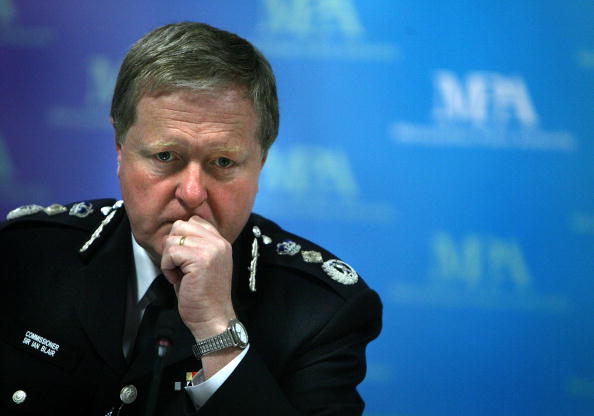Met chief's secret squad 'used illegal informant'
High-profile murder inquiry in disarray as police watchdogs investigate claims that mole sat in on lawyer-client briefings. Michael Gillard reports

Sir Ian Blair, the Metropolitan Police Commissioner, has become embroiled in an eavesdropping controversy amid accusations that a secret squad paid a mole to inform on defendants' private legal discussions and "sabotage" appeals.
Judicial watchdogs investigating the claims have received documents in which the informant admits receiving £21,000 over nine years to act as a human bug inside a group of south London businessmen.
One of the police targets was a man now facing trial for the axe murder of a private detective. The high-profile prosecution could be undermined if it is proved that strict rules governing the use of informants and police eavesdropping on legally privileged conversations have been broken.
The disclosure comes amid growing concern that the police are using novel but unlawful intelligence-gathering techniques.
Andrew Holroyd, president of the Law Society, has separately written to the Secretary of State for Justice, Jack Straw, to demand "a thoroughgoing review of the legal and practical framework for protecting legal professional privilege" against what he called "the ever-growing administrative, regulatory and technical apparatus of state surveillance."
This is only the latest legal bugging row to hit Sir Ian. In February, it was reported that anti-terrorist officers had bugged conversations in prison between the lawyer and Labour MP Sadiq Khan and a constituent. In 2007, Sir Ian himself was also ruled to have unlawfully bugged the phone calls of the Black & Asian Police Association, which was suing him.
The Criminal Cases Review Commission (CCRC) and the Independent Police Complaints Commission (IPCC) are investigating the latest case. It centres on an informant active from 1998 to 2007 who used the pseudonym "Joe Poulton". He is said to be a retired Scotland Yard detective recruited by the Complaints Investigation Branch (CIB3), a secret unit investigating one of the Met's most notorious unsolved cases – the 1987 axe murder of Daniel Morgan, a private detective, in south London. Detectives now admit that Morgan was about to "blow the whistle" on police involvement in drug trafficking.
CIB3 bugged the offices of the prime suspect in the murder conspiracy, another private detective, who cannot be named for legal reasons. There was insufficient evidence to prosecute him for murder but the man was jailed in 2000 for unrelated offences of conspiring to plant drugs on a client's wife.
Poulton became his trusted confidant, making prison visits and working on an unsuccessful appeal. The informant was also introduced to another inmate appealing his 2001 conviction for a major VAT fraud. Poulton worked on that case, too, which the Court of Appeal also rejected.
Both defendants have complained to the CCRC and IPCC respectively. They add that Poulton unlawfully informed on privileged information gleaned from attending solicitors' meetings and participating in other sensitive legal discussions. It is also alleged he took money from Legal Aid to conduct defence work while drawing money and expenses from Scotland Yard's Informant Fund.
The CCRC complaint from the man who is back in prison awaiting trial for the Morgan murder says: "Whilst in the employ of CIB, [Poulton] actively sought every opportunity to involve himself in my defence... [He] would join me, including weekends at my solicitor's office, to listen to audio tapes and examine other evidence... [He also] persuaded me to recommend his services as a solicitors agent... to gain access to other appeal applications, private letters and letters to Members of Parliament."
The complaint names Sir Ian, who was in charge of CIB3, and Assistant Commissioner John Yates, who worked in the secret unit and is now in charge of the Morgan murder case.
This is the Met's fifth investigation. Sir Ian and AC Yates have already apologised to the Morgan family for the quality of past investigations. The family was not made aware of this latest development.
The Met regard the complaints as vexatious. However, lawyers for the complainants have handed the watchdogs two confidential reports dated January 2006, which they say were written by Poulton to his police handler. One report says: "My handlers past and present can verify that I have given 100 per cent... [and] have been able to build up contacts for intelligence that have proved useful in relation to other investigations."
Poulton also confirms that his "long-running role" targeting the prime suspect in the Morgan case was kept from his defence during the earlier drugs planting trial.
A senior police source conceded that, if that conviction is found to be unsafe because of police foul play, it could have an adverse effect on the Morgan murder prosecution.
In 2002 five men accused of murder were acquitted when a judge discovered that Lincolnshire detectives had bugged conversations with their solicitors in the police station exercise yard.
The man believed to be Poulton did not return calls. The Metropolitan Police refuses to comment while the complaints are being investigated.
Subscribe to Independent Premium to bookmark this article
Want to bookmark your favourite articles and stories to read or reference later? Start your Independent Premium subscription today.
